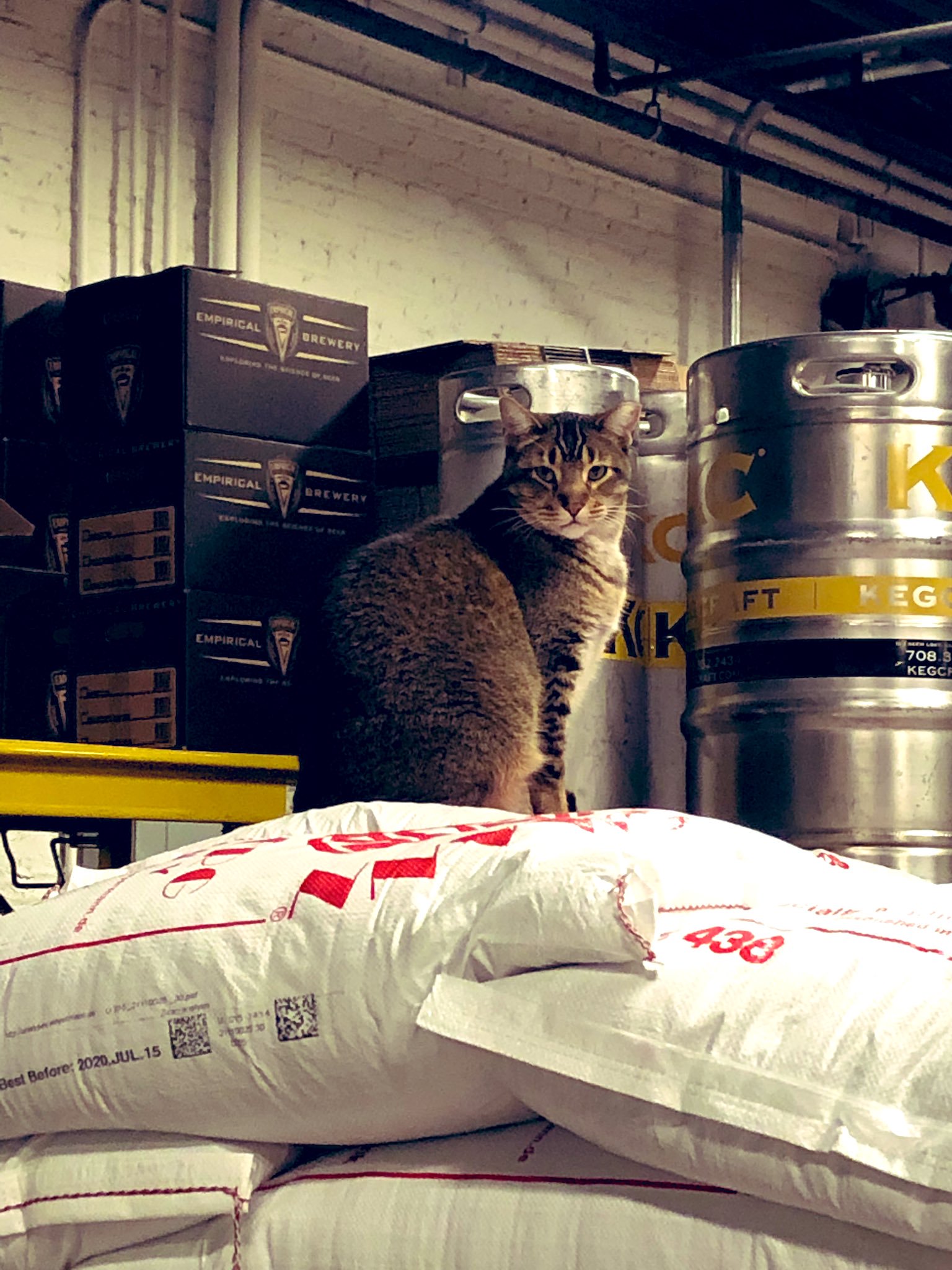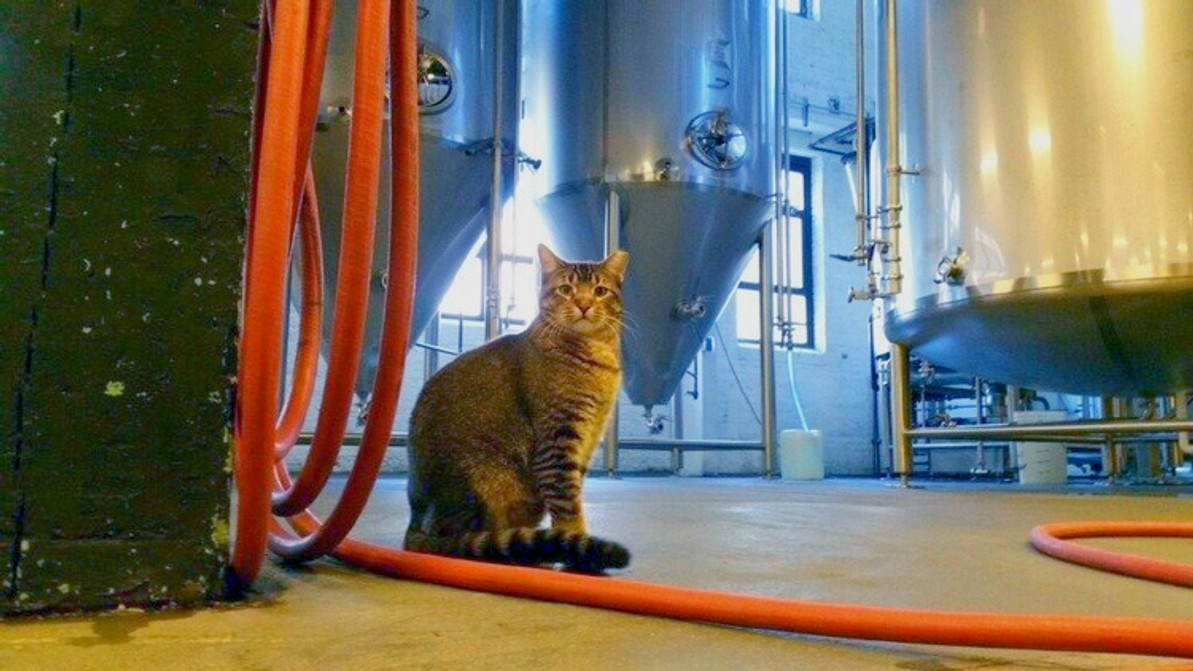Cats in Your Brewery? Watch Out For an FDA Audit
We love our pets, but did you know that cats in the brewery may get you in trouble with the FDA? The Food Safety Modernization Act (FSMA) regulates beer as food. Good Manufacturing Practices (GMPs) 21 CFR Part 117, which all breweries must comply with, require the use of pest control to protect ingredients like grains. Cats are not an approved method. Be prepared for your next audit with the FDA or Dept. of Agriculture by understanding the FSMA requirements and how they impact your brewery. And check out our blog post “5 Minutes with FSMA - A Brewers Overview of GMPs/GBPs” to learn more about this and other regulations.

We follow you on social media. We see the cute Instagram photos of cats lying around in your warehouse. Some breweries have gotten a lot of praise for using feral cats as pest control. Venkman the Cat is so famous, Empirical Brewery even gave him his own Twitter page. But keep in mind the FDA is looking at this from a different angle - food safety. Look at it this way - consider walking into the kitchen of your favorite restaurant and seeing a cat (whom may or may not have all of his vaccines) climbing over the shelves where food is being prepared or ingredients are being stored. Is cat hair in your food enough to gross you out? What if that cat had feces on his paws? What if he had just eaten a rat and then walked over an open box of pasta shells? Would the boil give you enough peace of mind to eat there? Or would you consider the restaurant reckless for allowing those conditions to exist? Is your brewery any different?
Take a holistic look at your brewing facility to ensure your products are safe for consumption. Many call these Good Brewing Practices (GBPs) but the regulations called them Good Manufacturing Practices (GMPs). That includes staff training, supply chain, the grounds/facilities, water supply/waste management, your utensils/tools used to prepare craft beverages, the processes and controls around the brewing process and microbiology, proper storage and temperature controls, and even the storage and management of spent grains. Looks for ways to mitigate cross contamination or physical contamination of your ingredients and spent grains.
The Plants and Grounds section of GMPs outlines how you need to have a documented maintenance plan, pest control and proper drainage. For example, the FDA does not like leaving the exterior doors open without screening to prevent pests from entering your brewery and into areas where ingredients are stored or beer (food) is prepared. Pests love grains and could leave behind waste that gets into your brew. Or pests could die inside your ingredients. One of the problems with using cats in your brewery is they carry germs and bacteria themselves. They leave behind waste that you would not want in your ingredients. A certified pest control company can help identify the entry points for unwanted pests and address the root cause, in addition to proper removal of any dead pests. The last thing you want in your beer is a dead rat carcass!
The Holding and Distribution of Human Food Byproducts section of GMPs outlines how to protect spent grains from foreign contamination. That would include every thing from garbage to broken glass to pests. It is important that your ingredients (grains, hops, etc.) are stored in proper containers with lids to keep the pests out. But it is just as important to use bulk containers with lids to properly remove and store spent grains if they are being fed to livestock or used in food products (bakeries, etc).
YOUR PARTNER IN COMPLIANCE
Union Jack is here to help you with FSMA compliance by providing quality cleaning and handling tools, and containers for your brewery. Check out hand selected products in the Brewery section of our website.
Union Jack
Keeping it Clean Since 2006
Recent Posts
-
The Origin of the Michelin Guide
From a little red guide book to an iconic standard in international fine dining, have you ever w …Mar 10, 2024 -
Make Color-Coding Your Resolution
Color-coding is a simple way to have a big impact on your facility’s food safety, sanitation and co …Jan 16, 2024 -
Why EPDM Transfer Hoses are a Great Choice for your Brewery
EPDM stands for ethylene propylene diene monomer. It’s a synthetic rubber that has quickly gained t …Jun 14, 2023




